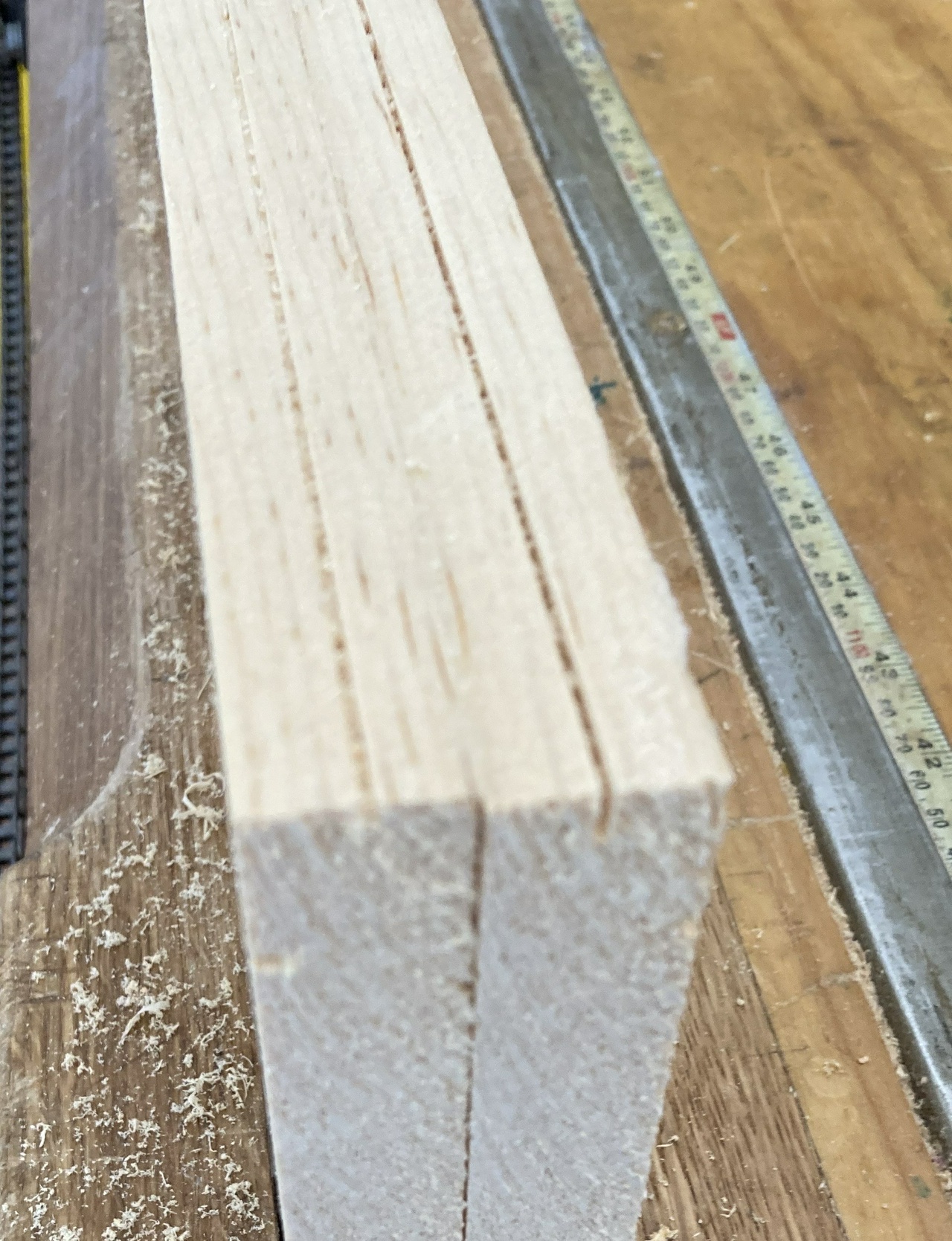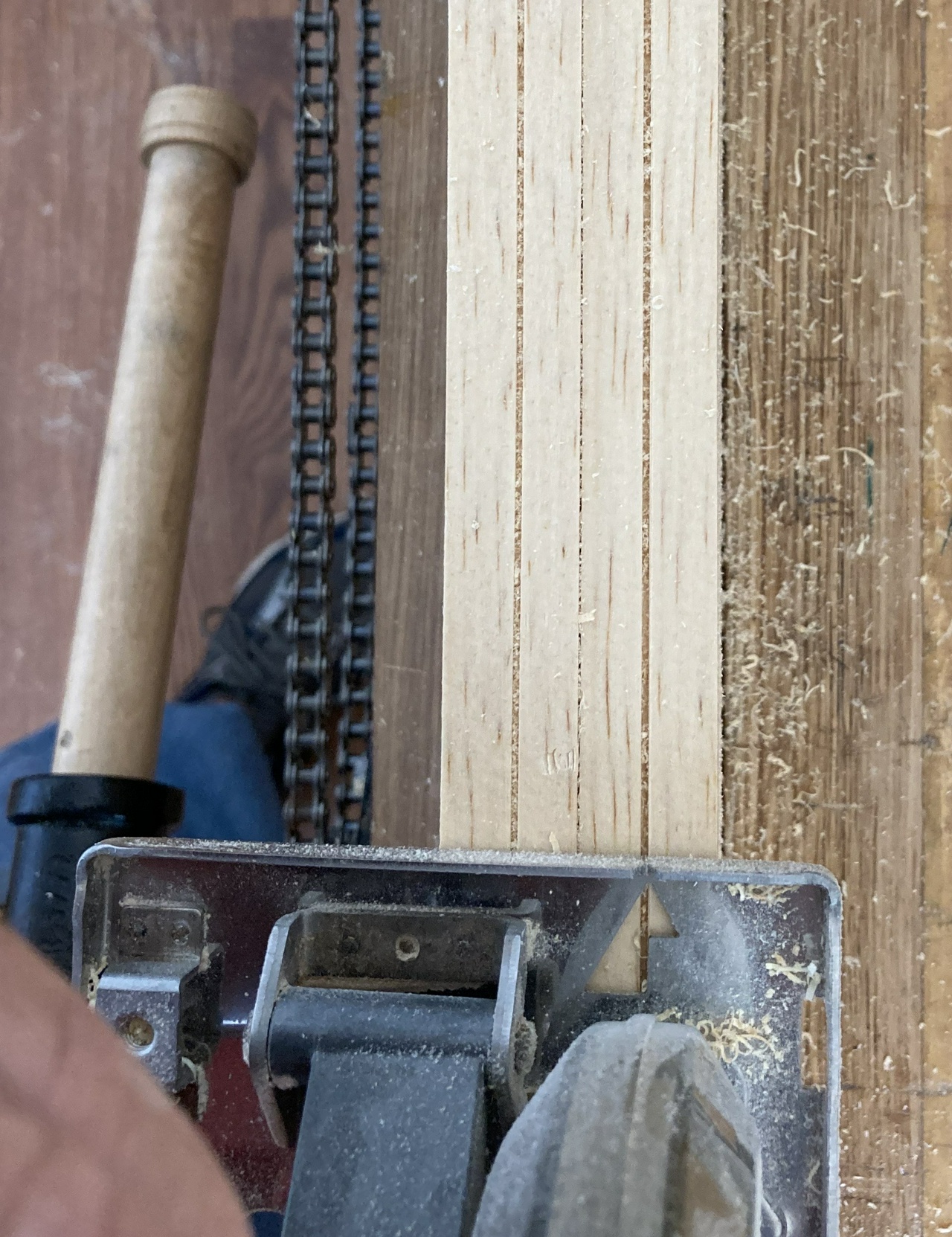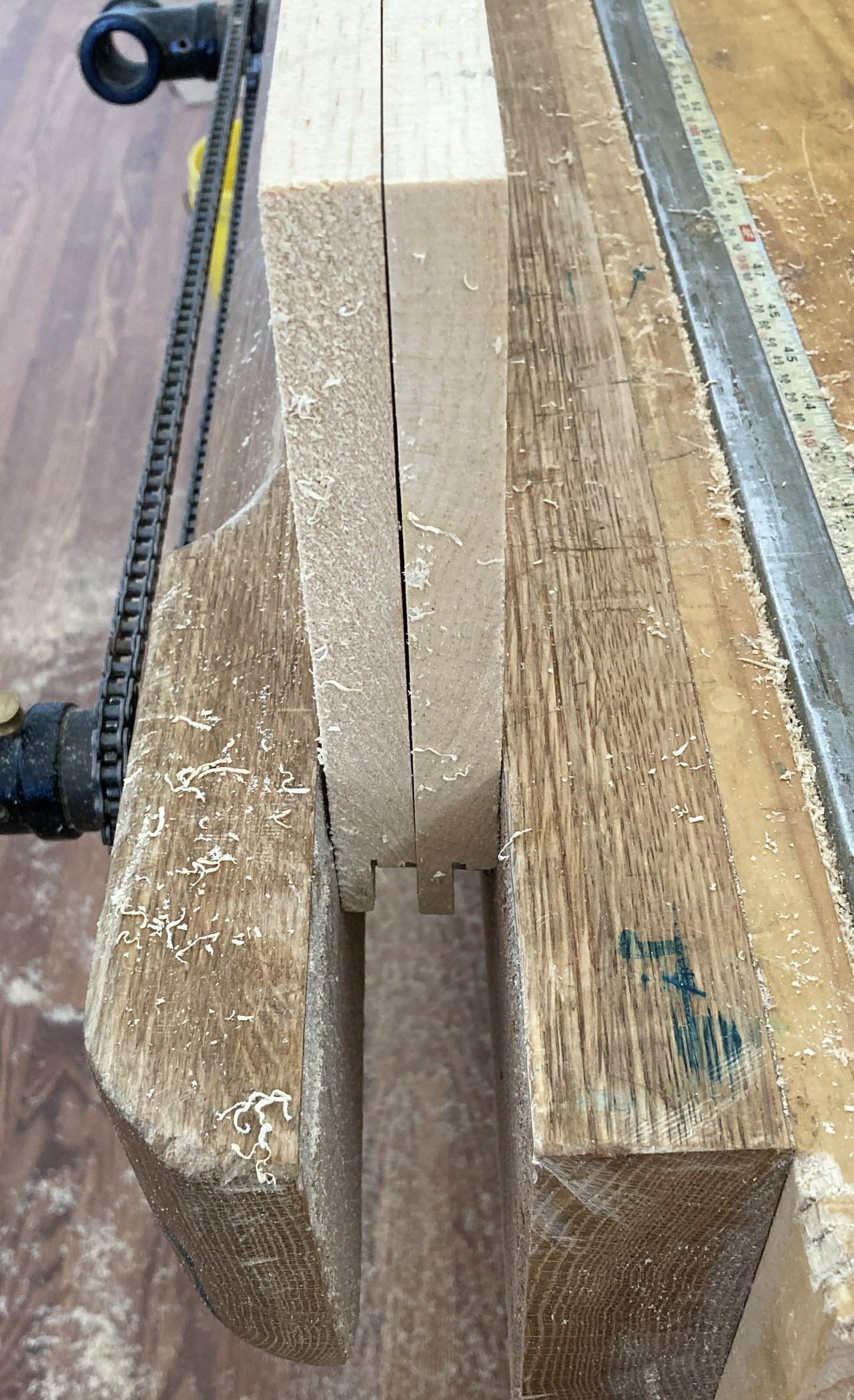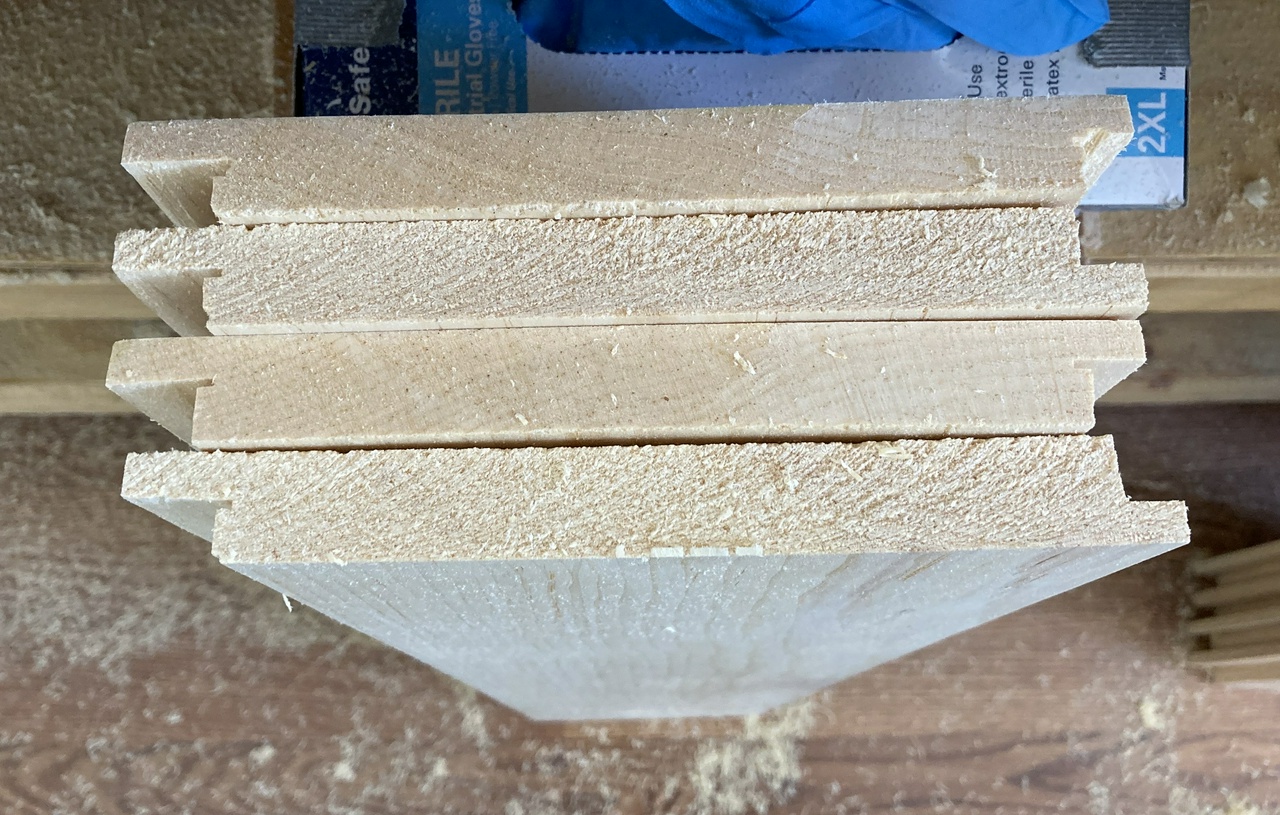Jefferson Bookcases – Back Boards
Originally written Aug 21, 2020
One of the things where I've improved my workflow while building these bookcases is the process of cutting all the rabbets on the boards that make up the backs of the cases.
Each back is made up of two boards, rabbeted into the case, and ship-lapped where they overlap. The rabbets are all ⅜ from the front or back of the board, and the rabbets on the edges that join the case are ⅜ wide. The ship-lap is ¾ wide, because with my 1×8s, that means the outside of the joined boards is about 14 inches, with the inside being 13¼ inches, to fit into an opening that's about 13½ inch, so they fit pretty well. When I start building cases that are smaller, I'll have to adjust things.
So I start by pairing up the boards. Mostly I'm looking to avoid huge differences in color. Each pair gets the shiplapped rabbets marked first. I'm using my ⅜ inch kerfing plane and my ¾ inch kerfing plane to do the marking. Originally I was cutting the rabbets with them, but a 30 inch long rabbet, ¾×⅜ inch deep is a lot of work.

With my marks ⅜ from the outside of the boards, I set the circular saw to make a cut ¾ inch deep.

And I make the two cuts.


Then I set the saw to make a ⅜ deep cut.

And cut the other part of the rabbet.

By having the two boards side-by-side while cutting, I've got a wider surface for the circular saw to ride on, and I end up with reasonably good cuts.
Here's the stack of eight back boards (for four cases) with the larger rabbets cut.

At this point I consult my story stick (not shown) and see if the boards are too big. If so, I'll plane down the pair of boards so they'll fit.

I flip half of the boards, so all of the rabbets are now on the same side, and set the up in the vise again.

And I make the marks.

And make the cuts.

Yep. I got them alternating correctly.

Then they go into the vise edge up, with the inside of the back away from me.

And I hand-cut the rabbets on the ends of the boards. It goes pretty quickly.



And that's it. Took me about an hour to cut four pairs of backs, as opposed to about an hour for a pair of backs doing it all by hand.
And yeah, if I had a table saw, it would go even quicker. But I don't, and don't do this sort of mass production often enough to make me want to get rid of something else from my shop to make room for a table saw.
Jefferson Bookcases Contents #woodworking #bookcases #rabbets
Discuss... Reply to this in the fediverse: @davepolaschek@writing.exchange